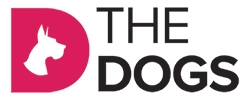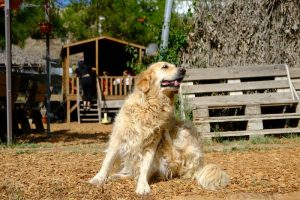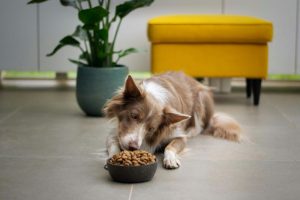The question of whether dogs can eat beans opens up a fascinating conversation about the role of plant-based foods in canine diets.
For dog owners considering new ways to diversify their pet’s nutrition, beans – particularly broad beans – may seem appealing. But are these legumes safe for our furry friends?
This article delves into the ins and outs of feeding broad beans to dogs, covering everything from nutritional benefits to preparation tips to ensure your dog reaps the rewards of this nutrient-dense food.
Are Beans Safe for Dogs?
Yes, beans are generally safe for dogs when prepared correctly. They are not essential in a dog’s diet but can serve as a healthy, protein-packed addition. However, not all beans are created equal.
While some, like green beans, black beans, and edamame, can be beneficial, others, like baked beans with added sauces, should be avoided. The key to safely feeding beans is knowing which varieties are safe, how to prepare them, and how to introduce them into your dog’s diet gradually.
Read More: Can Dogs Eat Black Pudding?
Nutritional Benefits of Broad Beans for Dogs
Broad beans are nutrient-dense and can offer several benefits to dogs when cooked properly and served in moderation:
- Protein: Broad beans are rich in plant-based protein, essential for a dog’s muscle growth, maintenance, and energy. This is especially beneficial for active dogs that require more protein to sustain their energy levels.
- Low Fat: Broad beans contain minimal fat, making them a good option for dogs who need to maintain a healthy weight. Low-fat foods also help prevent obesity-related issues, keeping dogs agile and active.
- Fibre: The fibre content in broad beans supports digestive health by promoting regular bowel movements and aiding gut health. Fiber can also help manage hunger, making it useful for dogs on calorie-restricted diets.
- Vitamins and Minerals: Broad beans contain essential vitamins such as vitamin K and vitamin C. Vitamin K plays a role in blood clotting, while vitamin C boosts the immune system and aids bone maintenance.
Potential Risks of Feeding Broad Beans to Dogs
Despite the benefits, feeding broad beans to dogs comes with some potential risks:
- Digestive Issues: Raw or undercooked broad beans are challenging, especially for breeds like Miniature Bernedoodle to digest, potentially leading to stomach upset, bloating, or even vomiting. Cooked beans are generally safe, but raw beans should be avoided. Broad beans, also called fava beans, contain a compound called phytohemagglutinin (PHA), which is toxic to dogs in high amounts. So, if you do feed your dog broad beans, ensure they are prepared correctly.
- Additives and Seasonings: Avoid adding salt, oils, or seasonings to beans, as these can be toxic to dogs. Ingredients such as garlic or onions are particularly harmful and should never be used. Serve your dogs fresh cooked beans, if you wish to avoid potentially harmful additives.
- Allergic Reactions: Some dogs may develop allergies to beans. While not common, it’s essential to monitor your dog for any adverse reactions.
Read More: Can Dogs Eat Snake Skin?
Can Puppies Eat Broad Beans?
Due to their sensitive, developing digestive systems, puppies can find beans more challenging to digest. Broad beans, in particular, should only be introduced in small amounts, ensuring they are fully cooked and mashed.
Puppies may experience mild digestive upset if beans are introduced too quickly, so start with a tiny portion and monitor their reaction. If the puppy shows signs of discomfort, such as bloating or diarrhoea, it’s best to pause and reintroduce beans later.
Read More: Dog Food Brands: What to Avoid for Puppies, Seniors, Sensitive and Skin Issues
Signs of an Allergic Reaction to Beans in Dogs
Dogs can have allergic reactions to a variety of foods, including beans. Symptoms of an allergic reaction might include:
- Red, itchy skin
- Vomiting or diarrhoea
- Wheezing or difficulty breathing
- Bloating or abdominal pain
- Changes in behaviour, such as lethargy
If any of these symptoms appear after feeding your dog broad beans, discontinue use immediately and consult your veterinarian.
Read More: How to Spot the Signs of Pancreatitis in Your Dog

How to Safely Prepare Broad Beans for Dogs
Preparation is key when feeding broad beans to dogs. Always cook the beans thoroughly to make them easier to digest. They have a thick skin and large size so they need to be cooked thoroughly to neurtralise the phytohemagglutinin (PHA) which is natural to the bean.
Avoid adding salt, oil, or seasonings. A plain, boiled broad bean is generally safe for most dogs. Cooking ensures that harmful compounds are broken down and also softens the beans, making them less likely to cause gastrointestinal discomfort.
Appropriate Portion Sizes for Broad Beans
When it comes to portion sizes, moderation is essential. A handful of mashed-up broad beans mixed with regular dog food can be a safe serving for most dogs. Larger dogs can handle a few more, while smaller breeds should stick to a minimal amount. Overfeeding can lead to digestive issues, so it’s best to keep bean portions limited to a small side dish rather than a main component of their diet.
How Often Can Dogs Eat Broad Beans?
Feeding beans to dogs every day is not recommended. Once or twice a week is typically sufficient for them to enjoy the benefits without risking digestive discomfort. Frequent bean consumption can lead to issues like excessive gas or stomach upset, so incorporating broad beans as an occasional treat or supplement is a balanced approach.
Other Beans Dogs Can Safely Eat
Aside from broad beans, several other types of beans are safe for dogs:
- Black Beans: Cooked and unseasoned, black beans are a nutritious addition.
- Edamame Beans: These can be served raw or cooked, but avoid added salt.
- Butter Beans: Also known as lima beans, these are safe as long as they’re cooked and plain.
- Kidney Beans: Cooked kidney beans are fine, but raw ones can be toxic.
Each type of bean offers its own set of benefits, from fibre to various vitamins. However, all beans should be prepared similarly—cooked, plain, and in moderation.
Conclusion
Broad beans, when prepared and served correctly, can be a valuable addition to a dog’s diet. They are a source of protein, fibre, and essential vitamins, and can contribute to a balanced diet. However, it’s crucial to introduce them cautiously, keeping portions small and observing your dog for any signs of discomfort or allergies.
Avoid raw beans and seasonings to prevent potential health issues. With these precautions, your dog can enjoy the health benefits of broad beans safely, giving you peace of mind and your dog a new, nutritious treat.






